UNISON member Lucy Knightley is keen to promote her profession
Going into surgery is a nerve-wracking and bewildering time for anyone, wheeled into an operating theatre with all kinds of people whirling around our heads. We’re aware of the nurses we’ve just left on the ward; it’s hard to avoid the anaesthetist; and we know that the surgeon is preparing to get to work. The rest is a blur.
But there’s another key member of the operating room staff, who most of us haven’t heard of, and yet is with the patient every step of the way: namely, the operating department practitioner, or ODP.
Today is National ODP Day, during which UNISON is celebrating the work of these unsung but highly skilled and essential health professionals.
And as Thursday is now the traditional #ClapForCarers time, the union is asking members to also have an #ovationforodps at 8pm.
Put simply, there is an ODP to cover each phase of a patient’s operation: anaesthetic, surgery and recovery. So there will be an ODP working directly with the patient as they enter and emerge from surgery, another alongside the surgeon during the operation. Individuals are trained to degree level to perform all of these roles, though often focus on one.
In what might be regarded as ‘normal times’, we couldn’t do without them. During the COVID-19 crisis, their skills and critical care training have placed them at the life-or-death frontline of care for those most seriously afflicted with the disease.
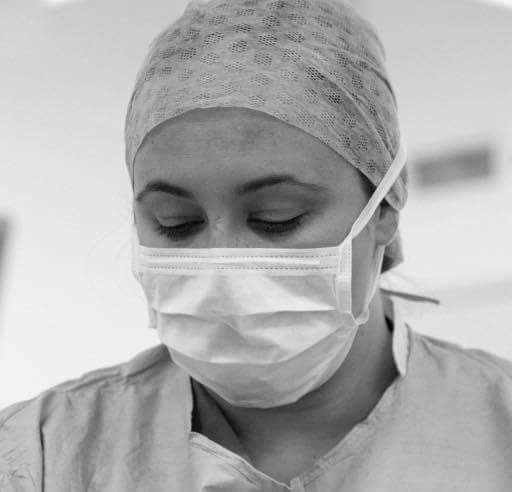
Lucy Knightley (above) is what’s known as a scrub ODP, whose role at Queen Elizabeth Hospital in Gateshead is centred on the procedure itself: she prepares the theatre, checks the equipment, then works alongside the surgeon, providing he or she with instruments and, if necessary, advice. She also works as the unconscious patient’s advocate, ensuring nothing is done that hasn’t been consented to, and that the individual’s dignity is maintained at all times.
“Every single day is an honour to do my job,” she says. “The patients don’t see me, or know I exist, but in a way they are entrusting me with their lives. You come into theatre, you don’t know I’m there, but you’re literally entrusting me to look out for you and care for you, and I think that’s an absolute privilege.”
At the same time, Lucy, who is the joint branch secretary of UNISON’s Gateshead Health branch, does lament the lack of awareness of her profession. When asked if ODP feel overlooked, she answers: “Completely”.
It was only two years ago that the ODP was recognised by the Health & Care Professions Council as an allied health professional, alongside the likes of paramedics, occupational therapists and physiotherapists. “But still nobody knows we exist. Even now there’s a lack of understanding of what our role is, and what we do, even amongst the health professionals.
“If you asked someone what an allied health professional is, I think most would say a physiotherapist or a paramedic,” she adds. “They don’t know about the rest of us under that umbrella. They think hospitals are run by doctors and nurses.”
Pandemic was definitely not in the job description. But when it came to it, a lot of us hit the ground running.
Not that this lack of recognition ever gets in the way of their work. As soon as her hospital started to galvanise for the coronavirus pandemic, Lucy and her fellow ODPs were redeployed to the critical care department, where the most seriously afflicted COVID-19 patients were being ventilated.
“We deal with critically ill patients on a daily basis in theatre, and whether a patient is anaesthetised for theatre or trying to recover from COVID, there’s not too much difference to how we care for them,” she observes. “It was quite natural for us to be the first people to be redeployed.
“Pandemic was definitely not in the job description. But when it came to it, a lot of us hit the ground running. When they said you have to go into critical care, we all said ‘That’s fine. We know what we have to do.’”
Anaesthetic ODPs were part of the intubation team. Lucy was helping a critical care nurse look after patients – with personal care, medication, observation, “every basic element to keep them safe.” They would generally care for one individual for a whole shift.
There was one, tragic difference with her normal job.
“It was more upsetting when some days you’d come in and somebody you’ve looked after was no longer there. That was kinda hard, because patients don’t tend to die in theatre very often. So to see that, at the level we did, was difficult. But we had to go in and say ‘Right, my next patient needs me’, and power on through the day. Your training and your professionalism took over.”
And once again, Lucy describes the privilege she felt in her job. “It was an honour to help them. Some of those patients never got to see a family member, so they spent the day with us. We were the closest they had to company, and a hand to hold, whether they knew that we were holding it or not.”
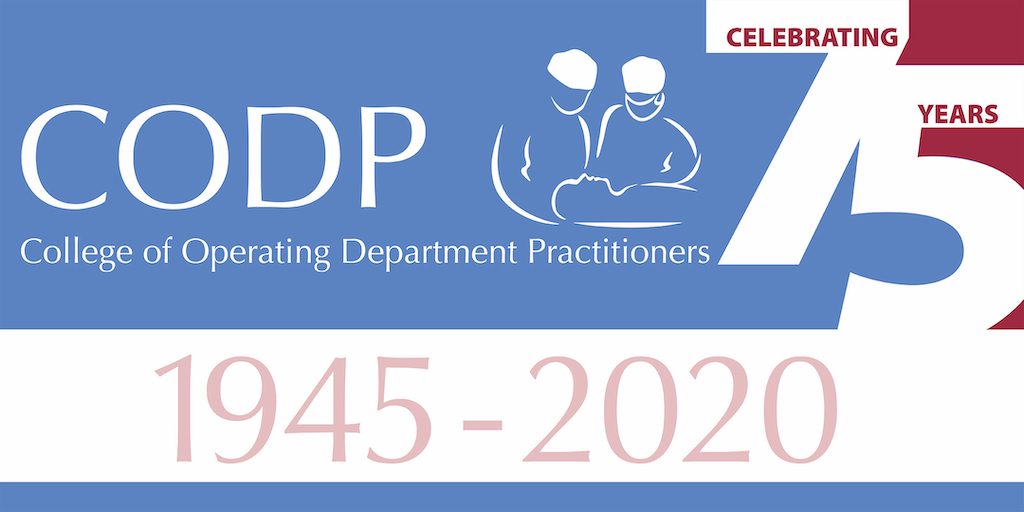
This week, Lucy and her ODP colleagues were returned to theatres, as there’s currently less need for them in critical care. Of the past two months or so, she reflects: “I don’t think I’ve had time to stop and actually process it yet, if I’m honest. The whole thing has been overwhelming. I just went into work every day focussed on what I needed to do. But it wasn’t easy, and it’s still not easy. It’s hard to put into words.”
Today is the third National ODP Day. It also marks the 75th anniversary of the College of Operating Department Practitioners, their professional body, which for the past eight years has fallen under the UNISON umbrella.
As well as raising awareness of the profession generally, Lucy says the original intention for the day had been to go into secondary schools and encourage students to consider the role as a career – “to tell them what an ODP is and that it’s an awesome job to go into”. Not surprisingly, alongside nurses and other roles, there is a national shortage of ODPs that needs to be filled.
She’s hoping that some of that message will still make its way through lockdown. And UNISON members can certainly help.
Meanwhile, Lucy and her fellow ODPs are “trying to get back to some normality”. But she fears that it will be short-lived. “This is far from over. The focus for all of us over the next couple of weeks is to try to get some time off. To get away from it for a little bit.”
Support your fellow members on Twitter.

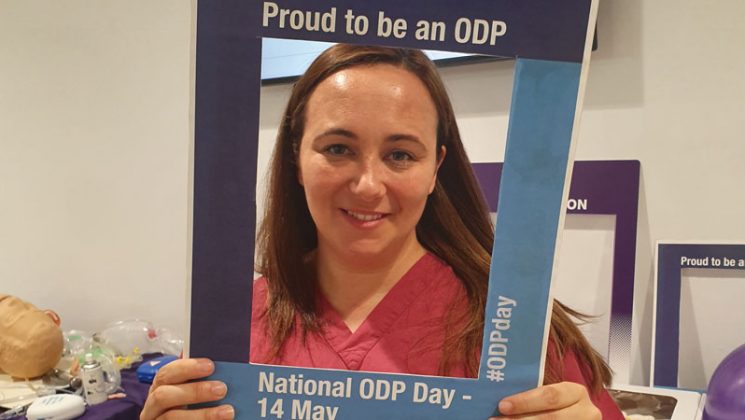
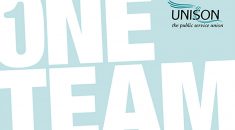
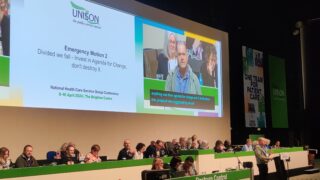
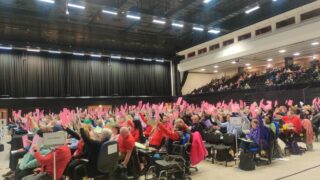
One thought on “The unsung heroes of the operating room – and now the pandemic”